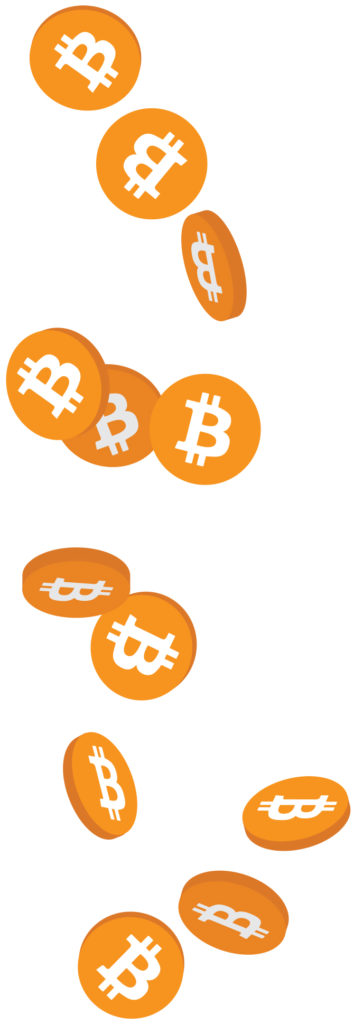The exploding market of cryptocurrency has been a hot conversation topic for the past few months. One could hardly attend a holiday gathering without a relative asking for the definition of “the blockchain,” or a friend cursing about not buying bitcoin when they first read about it, and Seattle U’s campus in no different.
Eliette Clausen, a psychology major, found out about bitcoin at Seattle U, but in a different capacity than most of those investing now. She heard that it was the currency used to buy fake IDs and other products on “the dark web” and had done a little research before the opportunity to invest appeared. In 2016, her cousin became ill and she would keep him company as they played around with online investing to pass the time and they decided to invest in bitcoin.
Although her returns have been good, she would not recommend investing now. “Bitcoin doesn’t have an ‘actual value’ like investments in the pharmaceutical industry or in tech. The initial ingenuity of the idea is what propels the excitement about investing in it and driving up the price, even though there is little payoff in other realms, like a minimal societal contribution. It’s like the exclusivity of high fashion or brand name shoes drives up the price and yet there’s little measured benefit for pretty much everyone.”
Unlike Clausen, MJOR Jackson Karlenzig started investing in cryptocurrency more recently. “The value seemed to be growing at an almost exponential rate and the potential rewards seemed very worth it. I invested in ethereum [an alternate cryptocurrency] after bitcoin reached its highest price point at 20k and began to decline after. I invested very late in the game, which was not ideal for short term returns, but I’m going to stay invested, which I hope will pan out in the long run.”
International Business and Finance major Quinton Peppin is more pessimistic. “Currently, cryptocurrency is being used as a speculative item. It wasn’t designed for speculative trading, and we won’t likely see large returns on it until you are able to buy a house with bitcoin.”
“I would never buy any of it until it could become more tangible, when its worth is tied to something and it is universally accepted.” With that said, Peppin did acknowledge that many financial institutions like JPMorgan Chase & Co, who initially were skeptical of cryptocurrency, have started to do deeper analysis and have spoken about opening departments devoted to cryptocurrency trading.
As far as practical usage for cryptocurrency, a Seattle-area man bought a home in Tukwila with a bitcoin-like currency earlier this year, though the buyer wouldn’t accept it directly, and a complicated mortgage process followed. Industries like real estate will be slow to start accepting bitcoin directly, but companies like Microsoft and even Subway have begun to accept purchases using bitcoin.
Computer science major Drew Torres, like many college students, did not buy bitcoin because he isn’t currently in a situation where he can invest a significant amount of money into such a volatile market. “From what I’ve seen bitcoin is just something that people decide to buy, they don’t think about using it as currency. I don’t think there’s merit to it as a currency because it’s unregulated, and that’s what people really like about it, so as far as individual use, it won’t get the traction of a more fluid currency like the U.S. dollar.”
Torres brought up another concern about cryptocurrency that rarely gets touched on in the conversation: environmental effect. Unlike cash, bitcoins can’t simply be printed and then spent. To create one, a computer must access the bitcoin network and solve a mathematical problem in a process known as “mining.” Every math problem is more complex than the last therefore the energy it takes to answer them increases exponentially with time. According to Digiconomist, at the time of writing this article, bitcoin was consuming as much electricity as New Zealand. Due the high electricity bills that come with mining, much of it is done in places like China where coal generators keep the cost low, but is especially harmful to the atmosphere.
Another place where electricity costs are low? Dorm rooms. Mining bitcoin has become a pastime of college students who receive portions of the cryptocurrency for every transaction they can foster; all while the school picks up the bill. I spoke to a student who asked to remain anonymous about the mining.
“I starting mining ethereum my second year at Seattle U while I was still in the residence halls. It was still pretty early on so there wasn’t much written on the environmental impact and I wasn’t thinking about the utility cost, I just wanted a way to make some money on the side.”
The student already had a graphics card that met the requirements for mining and simply read instructions on Reddit and earned over a couple hundred dollars before calling it quits due to his computer slowing down.
The future of cryptocurrency is unclear; however, as solid denizens of the tech age, every Seattle U student sees potential in a digital currency, but whether its value is in investment or practical use remains to be seen.
Quinn Ferrar may be reached at
qferrar@su-spectator.com








